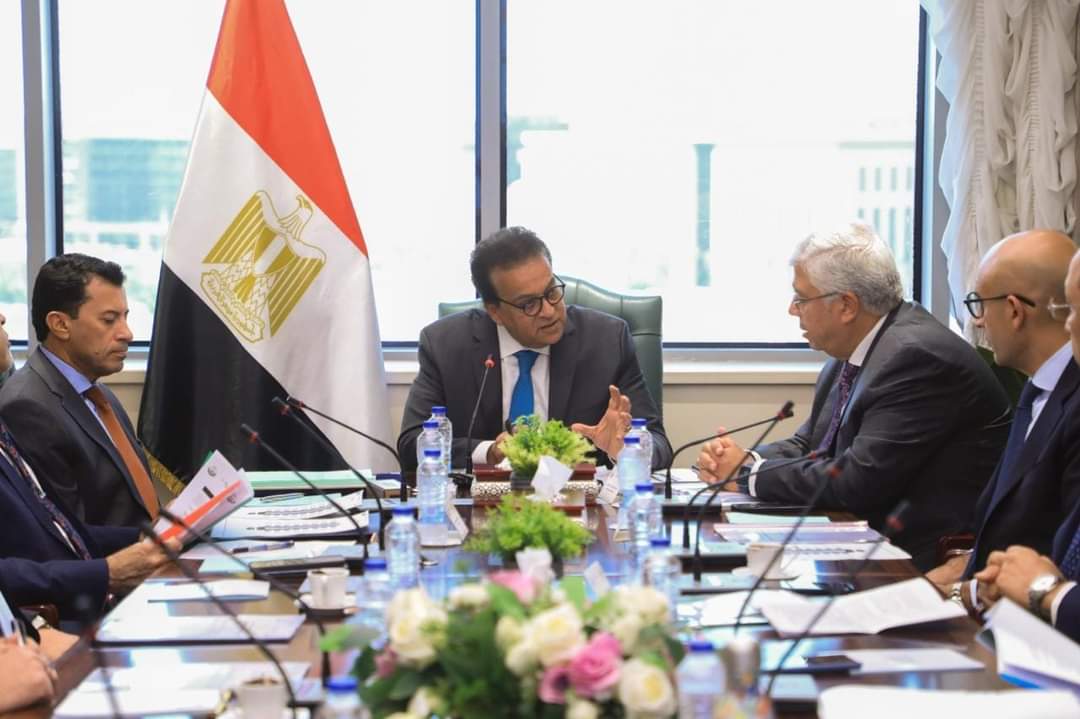Dr. Khalid Abdul Ghaffar, deputy prime minister for Human Development and Minister of Health and population, chaired the first meeting of the working group formed by Prime Minister’s Decision No. 2469 of 2024, which is specialized in studying the recommendations of the study submitted by the Senate Youth Committee under the title “artificial intelligence.. Opportunities and challenges”.
This was attended by the Ministers, Dr. Ashraf Sobhi, Minister of youth and sports, Dr. Ayman Ashour, Minister of higher education and scientific research, Mr. Mohammed Abdul Latif, Minister of education and technical education, and Mr. Mohammed Gibran, Minister of Labor.
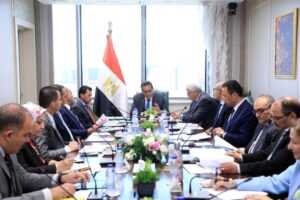
Deputy Prime Minister for Human Development reviewed the details of the presented study “artificial intelligence opportunities challenges” and the recommendations it concluded on benefiting from the developments of artificial intelligence, investment, labor market and employment, strengthening the orientation towards Digital Transformation, Creativity and intellectual property.
The meeting addressed the thematic discussions of the Working Group on the topics and issues mentioned in the study, where the ministers and their representatives reviewed – each in his field – what is being implemented with regard to artificial intelligence programs and applications over the past years in various fields of work, as well as the future needs and challenges facing them, in order to identify the similarities and differences between what is on the ground and what the study can provide in the field of artificial intelligence, within the framework of unifying efforts among all state institutions.
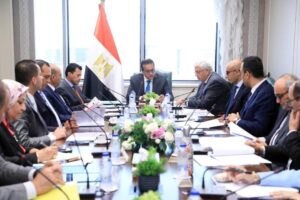
Dr. Khalid Abdul Ghaffar directed the formation of a technical secretariat for the Ministerial Working Group, which would draw up policies, which could represent a qualitative addition to what is already being implemented in the field of artificial intelligence, and formulate an executive plan including the distribution of responsibilities and various roles among ministries, the time range and estimated cost, the follow-up method, performance indicators related to the application of the study recommendations, and presentation to the Working Group for decision-making.
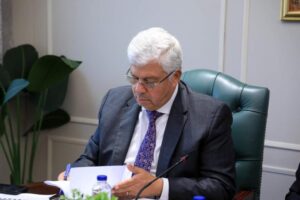
In a related context, the deputy prime minister stressed the importance of qualifying people and society to use artificial intelligence technologies, and hone their skills at various stages of their lives, which contributes to a person’s ability to deal with modern technological technologies and keep abreast of everything new in this field.
Dr. Khalid Abdul Ghaffar reviewed the possibility of forming a working group to prepare an integrated study of future local and global jobs, and the skills required within each specialty, in coordination with the Ministry of Labor and the International Labor Organization, to identify the opportunities that will be available to young people in the future, to work in light of them in terms of learning tools and skills needed to acquire and develop within youth, to become a workforce capable of development, according to future needs, whether internally or externally.
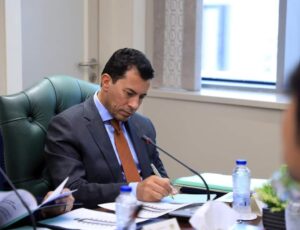
For his part, Dr. Ashraf Sobhi, Minister of youth and sports, stressed the importance of linking work in the field of youth and sports with modern technologies of artificial intelligence, reviewing the models of sports work that rely on these technologies.
Dr. Ayman Ashour, Minister of higher education and scientific research, pointed to the applications of artificial intelligence programs within all universities and research centers, explaining that about 104 thousand university students are learning artificial intelligence programs and modern technologies, reflecting the interest of the higher education system in this field.
Mr. Mohamed Abdullatif, Minister of education and Technical Education, noted that Egyptian schools have become equipped with a technological structure that allows the easy application of artificial intelligence programs within schools, reviewing his vision to benefit from these programs, whether in academic content or tests, stressing the importance of students possessing various technological skills that help them qualify for the future job market.
Mr. Mohamed Gibran, Minister of Labor, stressed that integration and coordination between ministries and concerned authorities accelerates the implementation of digital transformation strategies, pointing to the importance of Keeping Up with the requirements of the labor market, which depends on the skills of working with artificial intelligence programs.
The meeting was attended by Dr. Mohammed al-Tayeb, Deputy Minister of Health and population, engineer Sabah Mishali, Deputy Minister of electricity, Mr. Ahmed Yasser, Deputy Minister of Finance, Dr. Raafat Hindi, Deputy Minister of Communications, Dr. Ashraf Abdul Alim, Assistant Minister of Health for Information Technology Affairs, Mr. Ali al-Sisi, Assistant Minister of Finance, Dr. Hoda Baraka, advisor to the minister of communications and business officer of the National Council for artificial intelligence, and Dr. Ali Abdel Fattah, permanent undersecretary at the Ministry of electricity.
